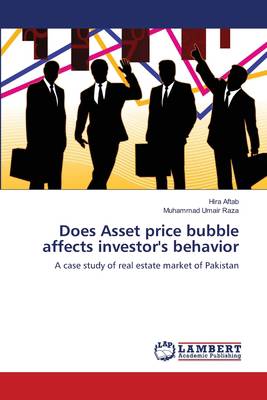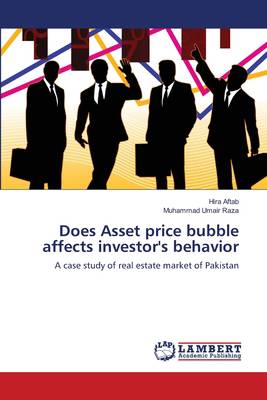
- Afhalen na 1 uur in een winkel met voorraad
- Gratis thuislevering in België vanaf € 30
- Ruim aanbod met 7 miljoen producten
- Afhalen na 1 uur in een winkel met voorraad
- Gratis thuislevering in België vanaf € 30
- Ruim aanbod met 7 miljoen producten
Zoeken
Does Asset price bubble affects investor's behavior
A case study of real estate market of Pakistan
Hira Aftab, Muhammad Umair Raza
Paperback | Engels
€ 77,95
+ 155 punten
Omschrijving
Primary aim of this research is to shed light on the hitherto neglected issue of speculative bubble in real estate market of Pakistan. The apparent over valuation in real estate market in early 2000s can be characterized as a so-called speculative bubble. This study examines the influence of speculative bubble phenomenon on investors' behavior. Moreover it also clarifies the concept of speculative bubble and factors lie behind the speculative bubble. Behavioral finance provides the framework for this thesis. It utilizes knowledge of cognitive psychology and social sciences to explain irrational investor behavior that is not being captured by the traditional rational based models. The empirical research is based on a questionnaire directed towards investors in real estate market of Pakistan, more specifically investors from different areas of Lahore. The results obtained suggest that the behavior of investors during the speculative bubble was to some extent irrational and that decisions had changed as a consequence of the speculative bubble.
Specificaties
Betrokkenen
- Auteur(s):
- Uitgeverij:
Inhoud
- Aantal bladzijden:
- 240
- Taal:
- Engels
Eigenschappen
- Productcode (EAN):
- 9783659205293
- Verschijningsdatum:
- 24/08/2012
- Uitvoering:
- Paperback
- Formaat:
- Trade paperback (VS)
- Afmetingen:
- 152 mm x 229 mm
- Gewicht:
- 358 g

Alleen bij Standaard Boekhandel
+ 155 punten op je klantenkaart van Standaard Boekhandel
Beoordelingen
We publiceren alleen reviews die voldoen aan de voorwaarden voor reviews. Bekijk onze voorwaarden voor reviews.











